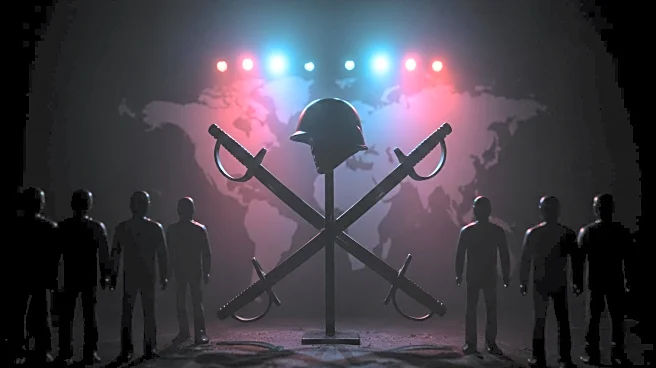What's Happening?
Jordan has announced the reinstatement of mandatory military service for men, marking a significant policy shift after 34 years. The decision was revealed during a press conference by government spokesman Mohammed Al-Momani, who outlined exemptions for only children, those medically unfit, or living abroad. The move targets 6,000 young Jordanian men born in 2007, with plans to expand to 10,000 recruits. Basic training will commence on February 1, 2026, lasting three months, followed by assignments to various military units. The reinstatement comes amid speculation linking the decision to Israeli Prime Minister Benjamin Netanyahu's recent statements about a 'Greater Israel,' which includes territories in Jordan. However, Jordanian officials have condemned these remarks and emphasized that the draft aims to prepare young people to serve and defend their homeland, fostering national identity and discipline.
Why It's Important?
The reinstatement of conscription in Jordan is significant due to its potential impact on regional stability and internal socio-economic dynamics. By reviving mandatory military service, Jordan aims to strengthen national identity and enhance the employability of its youth through vocational training. This move could also be seen as a strategic response to regional geopolitical tensions, particularly concerning Israel's territorial ambitions. The decision may bolster Jordan's military capabilities, providing a deterrent against external threats. Additionally, the policy could address domestic unemployment issues by engaging young men in structured service, thereby contributing to economic stability.
What's Next?
Jordan's government plans to implement the conscription policy starting in 2026, with recruits selected via electronic lottery. The military service will include basic training followed by assignments to various units, although the duration of service remains unspecified. The government will collaborate with partners to develop a national service plan with a clear timeline. As the policy unfolds, reactions from regional stakeholders, including Israel, may influence Jordan's diplomatic and military strategies. Internally, the policy's success in fostering national unity and reducing unemployment will be closely monitored.
Beyond the Headlines
The reinstatement of military service in Jordan may have deeper implications for the country's socio-political landscape. It reflects a broader trend of nations revisiting conscription as a means to address economic and security challenges. The policy could also influence public sentiment, potentially increasing support for the government by aligning with patriotic calls for national defense. Moreover, the move may affect Jordan's relations with neighboring countries, particularly if perceived as a response to external threats.












